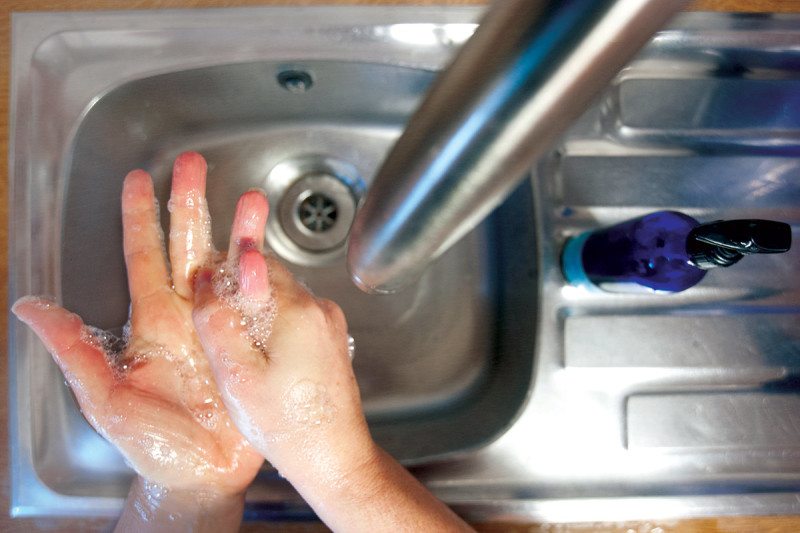By
IF FIGHTING bacteria one way is good, two ways would be even better, you’d think. But not always: an antibacterial widely used in soaps and cleaning products actually helps microbes like MRSA beat powerful antibiotics.
The substance in question is triclosan. It is not an antibiotic but a different type of compound that, rather than killing bacteria, stops them from growing instead.
Triclosan is so widespread that there are concerns that this may encourage bacteria to evolve resistance to it, posing a problem for hospitals that use antibacterials to prevent infections spreading. These concerns have helped prompt the US Food and Drug Administration to ban the use of triclosan in consumer hand soaps, and the FDA is pondering further restrictions.
Now there’s reason to worry over even more serious effects. To see whether antibacterials can affect the performance of antibiotics, Petra Levin and Corey Westfall, at Washington University in St Louis, Missouri, exposed Escherichia coli to common antibiotics and triclosan, and measured their survival over 20 hours.
When the bacteria were exposed to the antibiotics streptomycin or ciprofloxacin, plus triclosan, they were 10,000 times more likely to survive than those that weren’t also given triclosan. Further tests found that triclosan protects the MRSA superbug against vancomycin, a crucial antibiotic often used as a last resort in MRSA infections (bioRxiv, DOI: 10.1101/090829).
“Triclosan protects the MRSA superbug against the last-resort antibiotic treatment, vancomycin”
We don’t know why triclosan has these effects, but one explanation might lie in the different ways that antibiotics and antibacterials work. Most antibiotics kill bacteria by interfering with essential steps in their life cycle, such as making cell walls. Since triclosan prevents bacteria from growing, they may not go through as many life cycle stages, becoming impervious to antibiotics as a result. “A dormant cell has not a lot of active targets, so there’s not much to corrupt,” says Kim Lewis at Northeastern University in Boston.
We don’t yet know whether triclosan could be aiding bacteria to survive in the bodies of those taking a course of antibiotics. Until we know more, it might be wise for such people to cut their exposure to triclosan.
The trouble is, it’s very hard to do that. “Triclosan is all over the place,” says Nathalie Balaban at the Hebrew University of Jerusalem, Israel. “You’re giving a treatment and you’re not even aware it’s there.”
Triclosan may have another sinister effect. Antibiotic treatment usually aims to kill all the bacteria causing an infection – otherwise surviving microbes could pass on whichever genes helped them resist the drugs. By enabling bacteria to persist in the presence of antibiotics, triclosan may speed up their ability to evolve such resistance. If so, that could be a good argument for further restrictions on its use, Lewis says.
The soaps stocked in Dun Laoghaire Pharmacy do not contain triclosan. These can be found in the bathroom essentials section of our shop and include brands like the Handmade Soap Company, Jason and Organii.
